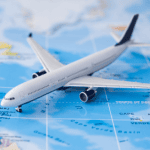
Traveling is an incredible adventure that allows us to explore new places, experience different cultures, and create lasting memories. But did you know that travel can also be a fantastic opportunity for learning? Educational travel experiences open up a world of knowledge and growth for people of all ages, and they can be particularly exciting for students. In this article, we’ll dive into the wonderful world of learning while traveling, exploring how it can enhance education and broaden horizons. Whether you’re a curious 6th-grade student or a parent planning a family trip, read on to discover the many ways in which travel can be an enriching educational experience.
The Classroom Beyond Walls
Imagine learning about history by standing in the very places where major events occurred, or studying science by observing unique ecosystems in their natural habitats. Educational travel allows you to step out of the classroom and into the world, making subjects come alive in ways that textbooks simply can’t match.
- History Comes Alive: History buffs will find educational travel particularly thrilling. Visiting historical sites like the Pyramids of Egypt, the Colosseum in Rome, or the Great Wall of China can make history lessons captivating and unforgettable. Walking through these ancient wonders, you can imagine what life was like in the past, making history feel more real and tangible.
- Science Adventures: Science enthusiasts can explore ecosystems, observe wildlife, and even engage in hands-on experiments during their travels. National parks, zoos, and aquariums provide valuable opportunities to learn about biodiversity and conservation. Witnessing the wonders of nature up close fosters a deeper appreciation for our planet’s beauty and complexity.
Cultural Immersion
Traveling exposes you to diverse cultures and traditions, allowing you to gain a deeper understanding of the world’s people. Learning about different cultures can broaden your horizons, promote empathy, and foster a sense of global citizenship.
- Language Learning: Being in a foreign country gives you a chance to practice and improve your language skills. Whether it’s ordering food in a local cafe or asking for directions, using a new language in real-life situations can be both challenging and rewarding.
- Cultural Exchange: Engaging with locals and participating in cultural activities can provide insights into the traditions, customs, and values of different societies. Trying new foods, attending festivals, and even staying with host families can be incredibly enriching experiences.

Learning through Museums and Exhibitions
Museums and exhibitions are treasure troves of knowledge, and many cities around the world are home to world-class institutions that cover a wide range of subjects.
- Art Appreciation: Art museums showcase masterpieces from different eras and regions. Observing famous paintings and sculptures in person can deepen your appreciation for art and inspire your own creativity.
- Science and Technology: Science museums often feature interactive exhibits that make complex concepts fun and understandable. From learning about the human body to exploring outer space, these museums cater to various interests.
Taking a Step Back in Time: Historical Sites and Landmarks
Exploring historical sites and landmarks can transport you to different periods in history, making it easier to grasp the significance of past events.
- Architectural Marvels: Visiting ancient structures like the Taj Mahal or the Acropolis can be a lesson in architecture and engineering. You’ll marvel at the skill and craftsmanship that went into creating these wonders.
- War Memorials: Sites like the Pearl Harbor Memorial or the Holocaust Memorial Museum serve as powerful reminders of the impact of historical events. They offer valuable lessons in empathy and the importance of peace.

Exploring Local Cuisine
One of the most delicious ways to learn while traveling is through food exploration. Each region and country has its unique culinary traditions, and trying local dishes can be a delightful educational experience.
- Culinary Adventures: Sampling traditional dishes, street food, and local delicacies can teach you about a region’s history, geography, and cultural influences. For instance, trying sushi in Japan, pasta in Italy, or tacos in Mexico not only pleases your taste buds but also offers insights into the ingredients, techniques, and flavors that define these cuisines.
- Cooking Classes: Many destinations offer cooking classes where you can learn to prepare authentic dishes yourself. These hands-on experiences not only teach you about cooking techniques but also provide an appreciation for the cultural significance of various ingredients and recipes.
Conclusion
Educational travel experiences open doors to new knowledge and perspectives. From historical sites to cultural immersion, museums, and culinary adventures, travel enriches our understanding of the world. Whether you’re a curious 6th-grade student or a lifelong learner, remember that each journey is an opportunity to expand your horizons and embrace the joy of learning. So, pack your bags and embark on the educational adventure of a lifetime, where every destination becomes a classroom, and every experience deepens your appreciation of our diverse and fascinating planet. Safe travels!






